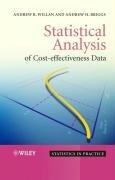| Listing 1 - 4 of 4 |
Sort by
|
Book
Year: 2006 Publisher: Cheltenham, UK ; Northampton, MA Edward Elgar
Abstract | Keywords | Export | Availability | Bookmark
 Loading...
Loading...Choose an application
- Reference Manager
- EndNote
- RefWorks (Direct export to RefWorks)
Benefitcost analysis (BCA) is the best technique for analyzing proposed or previously enacted projects to determine whether undertaking them is in the public interest, or for choosing between two or more mutually exclusive projects. An introduction to BCA for students as well as practitioners, this accessible volume describes the underlying economic theory and legal and philosophical foundations of BCA.BCA provides an objective framework around which discussion, correction and amendment can take place. Stated simply, it is the calculation of values for all the inputs into and outputs from a project and then the subtraction of the first from the second. The authors goal here is to take the mystery out of the process. They discuss practical issues of market-based valuation and aggregation, non-market valuation, practical applications of general equilibrium models, issues in discounting, and the impacts of risk and uncertainty in BCA. They also provide a list of resources and case studies looking at ethanol and the use of cellular phones by drivers.Straightforward in style and cutting-edge in coverage, this volume will be highly usable both as a text and a reference. Advanced undergraduates and masters students in public policy, public administration, economics and health care administration programs will find this a valuable resource. It will also be of great use to agencies that perform benefitcost analyses.
Book
Year: 2006 Publisher: Cheltenham, UK ; Northampton, MA Edward Elgar
Abstract | Keywords | Export | Availability | Bookmark
 Loading...
Loading...Choose an application
- Reference Manager
- EndNote
- RefWorks (Direct export to RefWorks)
The author succeeds in bringing together many interesting real-life applications of CBA in various areas (including among others health, environment and transportation). The examples are well chosen to illustrate the basic issues and show clearly the crucial importance of theoretical and methodological assumptions. Moreover, they are presented in an accessible and attractive way. For those who know already the principles of CBA, these applications are stimulating and enjoyable reading. Erik Schokkaert, Tijdschrift voor Economie en ManagementThis fully updated new edition continues in the vein of its predecessor by viewing costbenefit analysis as applied welfare economics, while at the same time building on the earlier framework by extending the theory and providing further applications in each chapter.New for this edition are analyses of theory related applications in mental health, condom social marketing programs, female primary education as a means of preventing HIV/AIDS and the pricing of natural gas. Presented in an integrated manner, the theoretical concepts are constructed around the main building blocks of CBA, such as shadow pricing, distribution weights, the social discount rate and the marginal cost of public funds.This edition will cement the books place as a major and accessible text in the field and will be of great interest to graduate and undergraduate students of welfare economics and microeconomic theory, as well as government economists involved with any area of public policy.

ISBN: 9780470856260 Year: 2006 Publisher: Chichester John Wiley
Abstract | Keywords | Export | Availability | Bookmark
 Loading...
Loading...Choose an application
- Reference Manager
- EndNote
- RefWorks (Direct export to RefWorks)
The statistical analysis of cost-effectiveness data is becoming increasingly important within health and medical research. Statistical Analysis of Cost-Effectiveness Data provides a practical book that synthesises the huge amount of research that has taken place in the area over the last two decades. Comprising an up-to-date overview of the statistical analysis of cost-effectiveness data, the book is supported by numerous worked examples from the authors own experience. It has been written in a style suitable for medical statisticians and health care professionals alike. Key features include: an overview of statistical methods used in the analysis of cost-effectiveness data. coverage of Bayesian methodology. illustrated throughout by worked examples using real data. suitability for health care professionals with limited statistical knowledge. discussion of software used for data analysis. An essential reference for biostatisticians and health economists engaged in cost-effectiveness analysis of health-care interventions, both in academia and industry. Also of interest to graduate students of biostatistics, public health and economics.
Book
ISBN: 9780199227280 Year: 2011 Publisher: Oxford University Press
Abstract | Keywords | Export | Availability | Bookmark
 Loading...
Loading...Choose an application
- Reference Manager
- EndNote
- RefWorks (Direct export to RefWorks)
The third volume in the Handbooks in Health Economic Evaluation series, this book provides the reader with a comprehensive set of instructions and examples of how to perform an economic evaluation of a health intervention. It focuses solely on cost-effectiveness analysis in health care. The book is developed out of the Advanced Methods of Cost-Effectiveness Analysis course taught at the University of Oxford and the four main sections mirror the four principal components of the course: Outcomes, Costs, Modelling using decision tress and Markov models, and Presenting cost-effectiveness results.&L ABOUT THE SERIES Series editors Alastair Gray and Andrew Briggs Economic evaluation of health intervention is a growing specialist field, and this series of practical handbooks tackles, in depth, topics superficially addressed in more general economics books. Each volume includes illustrative material, case histories and worked examples to encourage the reader to apply the methods discussed, with supporting material provided online. The series is for health economists in academia, the pharmaceutical industry and the health sector, those on advanced health economics courses, and health researchers in associated fields
Economics, Medical --- Health Care Costs --- HD 47.4 Cost effectiveness --- Methods --- Statistical methods --- Sociale geneeskunde --- gezondheidszorg --- Social medicine
| Listing 1 - 4 of 4 |
Sort by
|

 Search
Search Feedback
Feedback About UniCat
About UniCat  Help
Help News
News